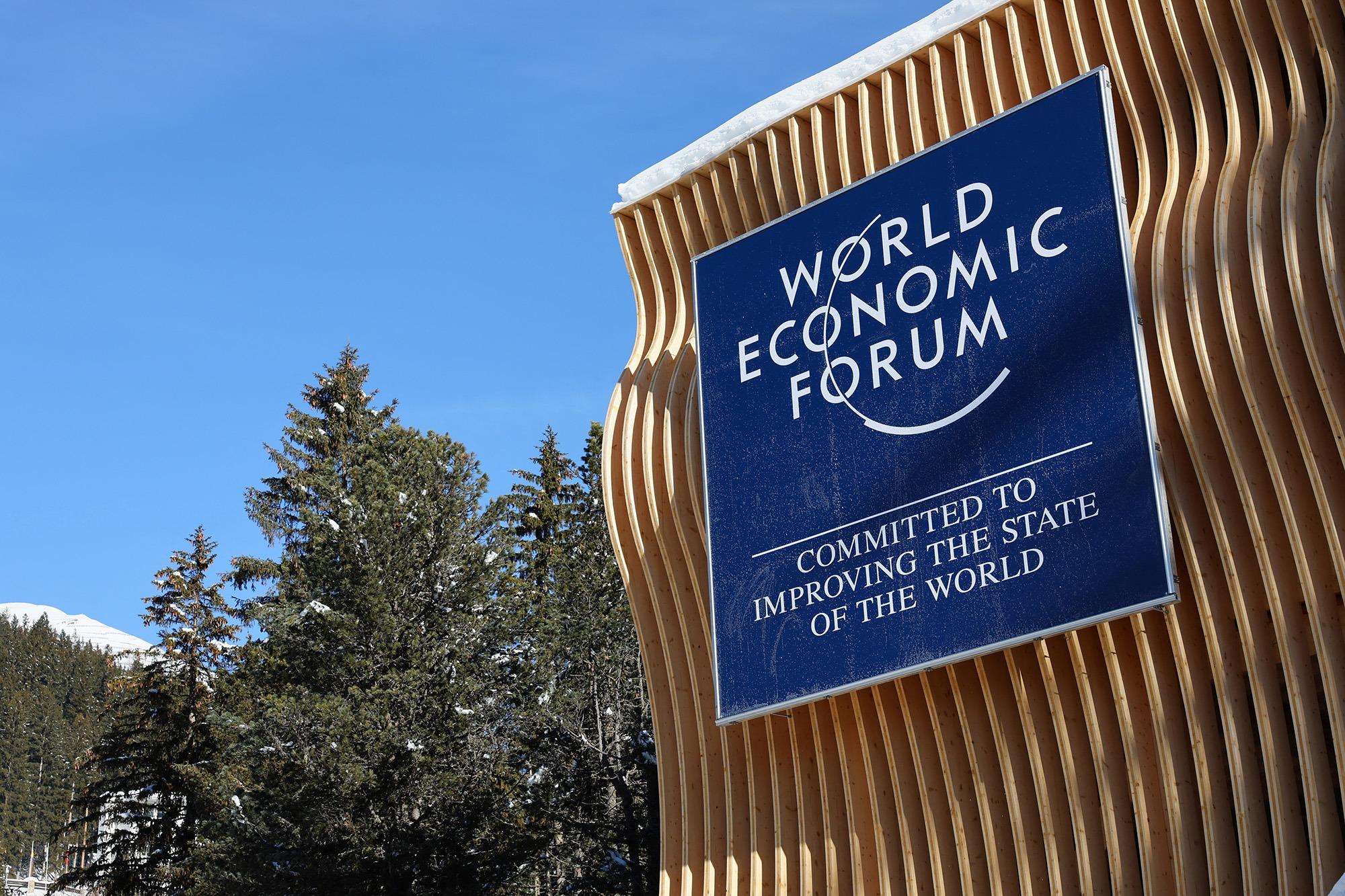 A logo is pictured at the Congress Center ahead of the annual meeting of the World Economic Forum (WEF) in Davos, Switzerland, Jan 14, 2024. (PHOTO / REUTERS)
A logo is pictured at the Congress Center ahead of the annual meeting of the World Economic Forum (WEF) in Davos, Switzerland, Jan 14, 2024. (PHOTO / REUTERS)
Against the backdrop of escalating divisions and persistent uncertainty that are unsettling the world, the highly anticipated 54th Annual Meeting of the World Economic Forum is expected to advance dialogue, strengthen cooperation and deepen partnerships to tackle critical global challenges.
"We face a fractured world and growing societal divides, leading to pervasive uncertainty and pessimism. We have to rebuild trust in our future by moving beyond crisis management, looking at the root causes of the present problems, and building together a more promising future," said Klaus Schwab, founder and executive chairman of the World Economic Forum.
The event, which starts in Davos, Switzerland, on Monday and runs through Friday, is gathering more than 2,800 leaders from over 120 economies, including Premier Li Qiang, French President Emmanuel Macron and European Commission President Ursula von der Leyen. Around 1,600 business leaders, including more than 800 of the world's most prominent CEOs, are participating.
The agenda will focus on addressing global developments by leveraging the forward-thinking initiatives of the forum and its stakeholders to deliver innovative, practical solutions. It aims to revitalize cooperation for resilience, economic growth, climate action, inclusive technology and equitable opportunities.
Lawrence Loh, director of the National University of Singapore's Centre for Governance and Sustainability, said the Davos meeting needs to get to the root of the economic challenges facing the world, and this pertains to geopolitical tensions in critical regions such as the Middle East and among key countries such as the United States and China.
Loh said he believes that trust can only be rebuilt or established among participating countries when the fundamental issues are resolved.
"Even with the current political global polarization, countries are often caught amid the tensions. ...More worrying is the fragmentation among countries, as the dynamics of national interests result in the protection of self-interest as the natural response," he added.
John Beirne, principal economist at the Asian Development Bank, highlighted the importance of rebuilding trust and confidence amid geopolitical challenges and geoeconomic fragmentation.
According to Beirne, these issues should be prioritized on the agenda. He emphasized the need to reduce economic uncertainty for long-term and equitable growth.
"The US, the EU and China have key roles to play in restoring macroeconomic and financial stability. Multilateral action, including efforts to liberalize cross-border trade and capital flows, will help to promote economic inclusion and prosperity," he said.
Cedomir Nestorovic, a professor of management at ESSEC Business School in France and the author of the book Geopolitics and Business, said that trust is a crucial but challenging aspect of the relationship between states, and should not be mistaken for friendship.
"Once the major powers, namely the US, the EU and China, agree on common goals, it becomes easier for them to implement policies related to trade rules, terms of exchange and supply chains," he said.
Tom Harper, a lecturer in international relations at the University of East London, characterized the current era as a period of "polycrisis".
He emphasized the significance of recognizing that many of the challenges the world is confronting are beyond the capacity of individual states to resolve. Instead, they necessitate global solutions and collective efforts.
Harper said he believes the present period of low growth has largely been a trend since the financial crisis of 2008, which many states have not fully recovered from. He argued that the previous "laissez-faire approach "favored by many governments is no longer effective.
"As a result, governments and civil society have to play a greater role in the economy since they are stakeholders in this, and in some ways, the Chinese economic model is a good example of the role that governments can play in fostering the economy," he said.
wangmingjie@mail.chinadailyuk.com


